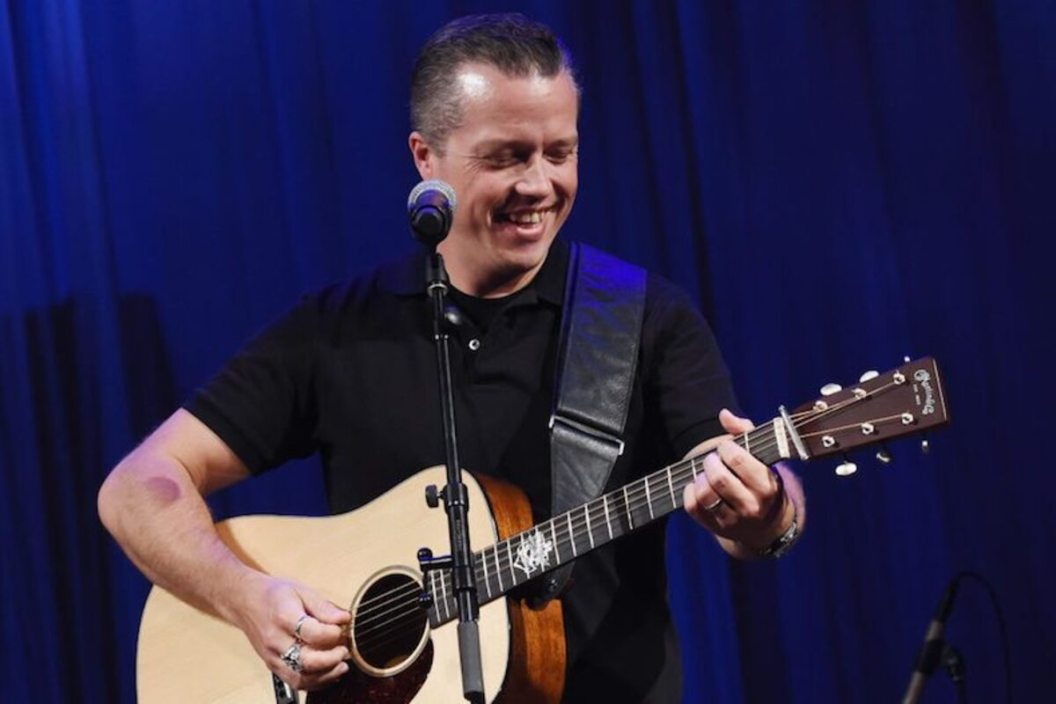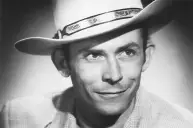No one writes songs quite like Jason Isbell. There's plenty of great singer-songwriters out there, but Isbell's ability to carve out deep, meaningful stories in a matter of moments is rare. He often takes storylines, ideas and subjects into places that aren't necessarily comfortable for the casual fan or faint of heart.
Deep down, his songs are all about some kind of conflict and relationships—even when they seem to lack one. On songs like "Alabama Pines," "Traveling Alone," and "Last of My Kind," where he feels tragically isolated and with a lack of prospects, you can't help but wonder how he's gotten to this point. You sense the ghost of one who left long ago. Contrastly, his love songs never seem to leave you. They resonate and warm you despite their acknowledgment of mortality and brevity.
Something that runs through the majority of Isbell's work is the conflict created by clashing generations. Often, these tell the story of a transitioning South where one side is holding on to tradition and heritage while the other is trying to progress, build and shake the status quo. There's a struggle there that Isbell doesn't just recognize and acknowledge, but one where he shares an empathy with on both sides.
For much of Southeastern, The Nashville Sound and the Drive-By Truckers album The Dirty South, he comes at it from all angles. Like many, he cherishes the greatest achievements of his Southern heritage while dispelling the wrongs and demystifying the injustices. Through it all, he breaks down the tough, complex issues with sincerity and insight.
Most of all though, Isbell challenges you to think. You're often left to reflect after each song, story and album. You relate his storytelling back to your own life. It's what makes Isbell a generational voice and talent, recognizable for his southern rock sounds accompanied by the band The 400 Unit.
To capture Isbell's career with 15 songs is a burdensome challenge. Still, there are very few wrong answers or orders. What makes his catalog and career so strong is just how specific each one truly is. Each song is precise and distinct. They call to you in their own unique ways. With that in mind, here are 15 of Isbell's greatest moments in songwriting.
15. "Stopping By"
"Stopping By" is easily one of Isbell's most underrated songs to date. It showcases Isbell's remarkable ability to morph into characters who are dramatically different from himself. Here, he takes shape as a teenage girl raised by a single mother. It's blistering with justified anger. Lines cut deep with digs at her absentee father. But what makes "Stopping By" truly resonate is what's underneath the surface. Her resentment is spurred on by being hurt and the simple, but the loaded question of why.
14. "God Is A Working Man"
"God Is a Working Man" is Isbell's contribution to the Dave Cobb- led Southern Family compilation. Here, Isbell gives a candid look at Pentecostal and Southern living. Much of the time, the conflict in Isbell's songs ("Last of My Kind," "Outfit") is spurred on because of generational gaps. While there's never any punches thrown in "God Is a Working Man," there are a few jabs back and forth in lines such as "He might judge you but he'll never make you stop" and "I've never seen a miracle, not one I've recognized." While Isbell represents progress, there's still admiration and respect for an older generation's work ethic and faith. There's understanding.
13. "Traveling Alone"
Isbell cuts himself off like no other. He'll become a shell of a person and lose way throughout his catalog. On "Traveling Alone," (and later on "Alabama Pines,") he deals with depression and isolation that's not just your typical run-of-the-mill privacy or solitude. Lines like "I quit talking to myself and listening to the radio a long, long time ago" display just how far removed he is from himself. He's lost his way. But there's a glimmer of hope buried deep within. He's finally reaching out with his rebuilt heart once the bridge comes in.
12. "Last of My Kind"
"Mama says God won't give you too much to bear. That might be true in Arkansas, but I'm a long, long way from there" sings Isbell on "Last of My Kind." In several ways, The Nashville Sound opener is a stark juxtaposition to a later song on the album, "White Man's World." Here, he's a man feeling as though his world is drifting further and further away from him. He feels as though he's being past by time and marginalized by change and an advancing world. In another songwriter's hands, "Last of My Kind's" narrator may have just stayed back in time and prospered. With Isbell though, he creates conflict. You feel his uneasiness, distress and lack of certainty. It shakes you to the core.
11. "Danko/Manuel"
"Danko/Manuel" appears on The Drive-By Truckers' record The Dirty South. For much of The Dirty South, the band attempts to demystify the looming figures of the South. Though Rick Danko and Richard Manuel of The Band aren't from a southern state, The Band's music is inherently southern and their influence is immeasurable. Here, Isbell doesn't necessarily break the band's legend, but rather pulls back the curtain and humanizes Danko, Manuel, and the struggles of being a touring musician.
10. "White Man's World"
As mentioned previously, "White Man's World" is in many ways the complete opposite of "Last of My Kind" despite the two narrators coming from the same cut of cloth. They're similar in background, but approach the changing of times in drastically different ways. Some will call this Isbell's white guilt trip, but it's not. He's acknowledging just how broken the American system is. What makes it relevant and real is how he holds himself just as accountable for his actions (verse four specifically) and is willing to learn from the mistakes of the past. It's a reminder that while progress has been made, this isn't a time for complacency.
9. "Yvette"
Most songwriters won't venture into the territory as dark or as serious as Isbell. It's one thing to write about an absent father ("Stopping By") or a Hatfield & McCoys type family feud ("Decoration Day"), but Isbell tackles an abusive father in "Yvette." In several ways, it's a companion piece to Here We Rest's "Daisy Mae." It's one of Isbell's most heartbreaking songs. He steps in as one of Yvette's classmates who's noticed just how abusive her father is. Though it's an incredibly delicate song, Isbell throws in lines like "I might not be a man yet but that bastard will never be" that give it an appropriate rawness that cut straight to how dire the situation really is.
8. "Speed Trap Town"
In some respects, "Speed Trap Town" feels more like a short story by Ernest Hemingway or Larry McMurtry. Like Hemingway, he cuts in mid-story. Like McMurtry, he captures the essence of small-town Americana. All the while, he's Bruce Springsteen Nebraska. While most of Isbell's songs hold a certain weight, on "Speed Trap Town," Isbell demands you to pay attention and multiple listens to fully get a solid grasp on what it all means. The narrator is the son of a former state trooper who's fallen to a terminal illness. It's near the end when the narrator finally has come to terms with how grave the situation is. His comatose father isn't any better and it's time to actually say goodbye. You have to read between the lines, but in the end, he's had to decide to take his father off life support. It's gut-wrenchingly Isbell in every way possible.
Read More: Jason Isbell + Amanda Shires: Inside the Americana Couple's Love Story
7. "Goddamn Lonely Love"
Isbell's time in Drive-By Truckers may have been just a brief stint, but his impact on the band was monumental. During his time, he contributed some of the band's best work, namely "Danko/Manuel," "Outfit," the criminally underrated "Never Gonna Change," and the heartbreaking "Goddamn Lonely Love." While Isbell has certainly hinted at alcohol dependency throughout his career, you really see it in "Goddamn Lonely Love's" blunt and cold lines like "I'll take two of what you're having and I'll take all of what you got." If "Alabama Pines" is rock bottom and "Traveling Alone" is that realization, "Goddamn Lonely Love" is certainly the beginning of the fall.
6. "Outfit"
One of Isbell's best skills as a writer is capturing interactions between generations. There's plenty of examples of this throughout the Isbell catalog, but none fit the bill more so than the Drive-By Trucker song "Outfit." It's brimming with advice from an experienced father. All too often, duty and responsibility come at a time in life when you aren't expecting it. You can feel unprepared by the moment. Isbell eloquently captures the transferring of potential and dreams from parent to child in "Outfit."
5. "Dress Blues"
On Sirens of the Ditch, his debut solo album, Isbell gave us "Dress Blues," a heartbreaking account of a Marine killed in action while being stationed in Iraq. Isbell wrote the song as a tribute to one his high school friends, Matthew Conley, who had been killed while serving his nation. Throughout, he speaks to Conley, telling him how it'd have been had he returned home a week later alive. Lines like "Nobody here could forget you, You showed us what we had to lose" and "Mamas and grandmamas love you, American boys hate to lose" show who actually suffers the sacrifices of war — the friends and families of those sent into conflict.
4. "Alabama Pines"
Isbell sings, "No one gives a damn about the things I give a damn about," near the end of "Alabama Pines." In a song chock-full of moments that are characterized by self-deprecation and isolation, it's one of Isbell's most tense lines to date. Isbell reveals incredible insight into the psyche of an individual who lost faith in his ability to relate to others.
3. "Cover Me Up"
So often, Isbell's catalog is characterized as being sad and heartbreaking. There's plenty of it throughout. But he still carves out time for the genuine love song. There's a down-home intimacy to Southeastern's "Cover Me Up." He isn't afraid to reveal a side of himself that's truly afraid of being alone. Still, lines like "so girl, leave your boots by the bed, we ain't leaving this room" have confidence in them that's more than just a cheap pick-up line. Much like the following entries, "Cover Me Up" finds Isbell well past the minutia of cliche love ballads. They're earnest and work on a higher level.
2. "If We Were Vampires"
If you listen closely, on the final line of the second verse of "If We Were Vampires," Isbell's voice cracks and quivers. That right there, "And hope it isn't me who's left behind," is the song. Again, Isbell doesn't write love songs that discolor or dim with time. He approaches them as love letters that never focus on flowery language or cliche lines about the physical touch. Of course, you think of your own mortality, but more importantly, you think of the mortality of others.
1. "Elephant"
Deep down, Isbell's "Elephant" isn't about cancer or imminent death; it's about a relationship and friendship. That's why you choke up when singing along. For much of Southeastern, Cobb and Isbell's focus was to create moments that felt like they could have been recorded in your own home. With just his acoustic guitar, Isbell recorded much of his vocals in Cobb's kitchen. The countdown in "If We Were Vampires" is much, much longer than the one in "Elephant," but it's similar. Everyone leaves this world at some point. That's not a grand revelation. But what Isbell does with "Elephant" is show how an entire world dies with the passing of the individual. Sometimes, lines in songs are simply good, but they fade in time. But, Isbell delivers lines like "there's one thing that's real clear to me, no one dies with dignity" that stay with you long after you hear them.
This article was originally published in 2018.
Editor's Note: Products featured on Wide Open Country are independently selected by our editors. However, when you buy something through our links, we may earn a commission.




